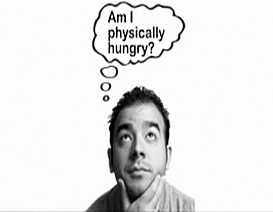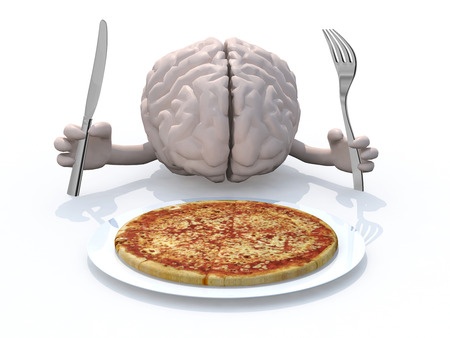-
Content Count
52 -
Joined
-
Last visited
Posts posted by Prudence Ticknor
-
-
How do you stay mentally strong on your weight loss journey? Are you currently satisfied with your results and the direction you are going? For most of us, having the knowledge of healthy foods, exercise and even having bariatric surgery is not enough. The missing piece, the training we most skip is addressing our mental strength and how we think.

“Anything is possible when you shift and go inside, to ask, to be silent and to listen. This is a journey where what you once thought would be a miracle becomes a reality” –Mind over Eating
Stop and become aware of the thoughts you have attached to food and why you are eating. Your thoughts are what drive your actions to eat. Therefore, making lifestyle changes requires becoming aware of and altering how you think. We all have automatic dialogue, mind chatter or what I like to call “mind monkeys”. This mind chatter distracts us from our goals, accomplishments and success for long term weight loss. This mind chatter is what leads us to feelings of discouragement, regret, guilt and all sorts of negative feelings.
You will reinforce new habits by first training the most efficient machine in your body; your brain. Do you want to make decisions about creating healthy habits and really sticking with them? You can do this by accepting the fact we all have voices, internal dialogue in our heads. Your thoughts program you to act or react in a certain way. If you want new behaviors, you need to train your brain and recondition your thinking. Start learning to reprogram your thoughts by watching the video below.
Sending you warm wishes
-
Long term weight loss can be maintained by mastering one simple but very deep question. Even after bariatric surgery, weight loss or weight maintenance is a mixture of self-love, discipline, commitment, courage, will, focus, determination and taking responsibility for our actions. As human beings, we tend to want instant gratification, usually reacting to our emotions instead of doing what Full-Fills us in the long term. Although many WLS patients may be deceived early on, bariatric surgery does not change this.

We have two urges that unconsciously control us: the need to feel good at any cost and to avoid pain at any cost. Therefore, if we do not consistently ask the questions and check the real motivation behind our behaviors, we will react to our emotions instead of choosing options that will empower us in the long run. The beauty is, every moment is a fresh opportunity to make new choices. You are bigger than any conditioned behavior you want to change. You are always able to regain control and shape your live in the direction you desire.
The crucial first step is awareness. In order to alter any behavior you must first take the journey of self-discovery and ask the questions to get to the core of why you do what you do. Do you love yourself enough to learn what will truly full-fill you and keep you satisfied?
Watch this “how to” video to create daily mindful actions that will assist you in reconditioning your thinking and reaching and maintaining long-term weight loss.
-
Such a beautiful article. thank you!
-
It was so much fun to read your posts! Thank you for the smile
 I love hearing about all the positive inspirational living!
I love hearing about all the positive inspirational living! -
Creating Motivation?
How do we create daily motivation to stay focused on our desires? You made the big and brave decision to have weight loss surgery; which is in your stomach. Now we need to have surgery on our brains.

To change a behavior, leading neuroscience expert Joe Dizpenza says, “You need to become greater than your conditioned or current habitual state or environment” You need to fall in love with a new thought/feeling state to experience lasting change.
It’s about making what you want in the future a reality now. We can do this by being a visionary. Surgery is a tool to support you. It is now up to you to create your own motivation for staying focused.
Watch this video for a simple technique to create daily motivation:
PS: This is my brand new YouTube station! If you found this information helpful, I would appreciate your support by liking my video and subscribing to my station.
Sending the biggest hug!
-
If you are still in the process of deciding whether to have WLS or not; I think you are asking a great question. I have been a professional specializing in bariatrics for over 10 years. I will say I have never heard that high of a number and I have not seen any research to support it. I will tell you that the research does show between 30 - 50+% of the people gaining the majority of their weight back after two years depending on which research you look at. It's a big concern and a topic of discussion within the professionals of the industry/surgeons. Many surgeons will just recommend a different WLS never really to address the real issue; your mind and the mental aspect of behavior change. Many people go into surgery with no education or training and really believing the surgery does it all for you. The surgery is just a tool and probably one of the strongest tools with in weight loss and healthy weight maintenance. Without WLS, the stats on losing weight and keeping it off is less than 2%; so that 50+% increase sure does make a huge difference. If you do the prep work, working on being a mindful eater, becoming aware of your emotions, etc.. and know that the surgery is in your stomach and not in your head and there will be work for you to do to make the surgery work, you will be successful! I wish you the best of luck in your journey to health!
Wynnie and 2muchfun reacted to this -
Hi Georgia,
Thank you for the link

You might want to check out Mind over Eating at www.moe-vt.com. This is an on-line behavior change program specifically designed for bariatric patients and emotional eating. Becoming aware of your thought/feeling states is a great start and very crucial since feelings drive our unconscious behaviors. It will be an on-going journey but the more aware you become of the old tape recorder in your head and learn the tools to create new recordings it gets easier. I did not have WLS but I was an emotional/binge eater for years and through the mind over eating tools have lost 80+ lbs.
Georgia Pritchett and BeagleLover reacted to this -
How often are you seduced by your thoughts to overeat? You’ve gone ahead and made the commitment to have weight loss surgery; you are not physically hungry, so why are you still eating? The simple answer is that your thoughts create feelings that drive your unconscious behaviors.

Many of us have thoughts that seduce us into doing things that are not in line with our goals. At the onset of a craving, the thoughts of seduction are telling you, “You deserve it. You’re special. You've been good all week. Go ahead and eat whatever you want. You are going to be strict tomorrow. Eat all the foods you love because you will never be able to eat them again.” How many of you remember that last thought before you had surgery? How many of you are now eating those exact foods those thoughts told you that you would never eat again? Take a moment to reflect on this next question, as it is imperative that you become aware of your internal dialogue. What seducing thoughts are currently controlling you?
The conscious decision to have surgery and achieve and maintain a healthy weight is just that: a conscious decision. Where many of us lack awareness is the understanding that the subconscious part of the brain is controlling and ruling our behaviors 70 percent or more of the time. So, that leaves you with the question of how do you get your subconscious on board with your conscious decision to reach and maintain a healthy weight?
What is the secret to working with the subconscious mind, the boss of decision making? Drum roll, please! The secret is meditation and guided imagery; you communicate and work with the subconscious through images and visuals. Below, I will walk you through a meditation that I do when I am craving certain foods and I am not physically hungry.
Craving Meditation
Read through the meditation a few times before actually going through the process. Before you begin the meditation, think about the food(s) you are craving and rate the intensity of the feeling on a scale of 1 to 10, with 1 being low and 10 being high.
1. Close your eyes. Imagine a large auditorium.
2. Silently ask your inner voices of seduction to enter the stadium.
3. Take a moment to listen to what they have to say.
4. Take a microphone and acknowledge that you have heard what they have said.
5. Then, tell the voices that you do not need them anymore as you are taking charge.
6. Open the doors and have all the voices in the stadium leave. Bolt and lock the doors after they leave.
7. Now, imagine those same foods you were craving and notice the difference in the intensity of the feeling and the mind chatter you had about the foods.
The next time you are experiencing a craving, a thought-feeling state, take a moment to do this meditation. This is a wonderful technique for creating new responses to your desires. I would love to hear from you. What did you notice after doing the meditation? If you have a technique that has helped you work through your cravings, please, pay it forward and share!
-
I would love to lead or co-lead a group in my area. I am a health professional that has specialized in working with bariatric patients for over 10 years. I did not have bariatric surgery but I was obese for over half my life. I have lost over 70lbs and maintain a healthy weight. I am a true believer in support groups and being around people that understand your struggles and maximizing on the positive energy of being with a group of people who are on the same journey of health.
I have a flexible schedule so support group days/times could vary depending on the demand.
Alex Brecher reacted to this -
-
perfect timing! As I sit at my work desk with stacks of unorganized papers on it and I feel the anxiety it is creating in me. I am committing to organizing my office today! Thank you for the article!
 Alex Brecher reacted to this
Alex Brecher reacted to this -
These are such great awareness's! Boredom is a thought feeling state; meaning you have a state of mind about being bored (thoughts) and feelings associated with it. Ana Gram, since you ID associations of the word "boredom" with other thoughts like " feeling left out of activities that my family or friends are doing"
So go deeper with this; does this create feelings of loneliness or isolation/separation or not being loved, etc... Once you ID the core feeling(s) which you have already ID is not boredom but something deeper. Then ask yourself is this thought feeling state even true, really true right now in the present or is it like you said something brought up from your subconscious from child hood? Also just practice sitting with it.
This is going to sound funny; but get to know it. Where is the feeling in your body? How intense is it from a 1 to 10? What type of energy does it radiate if any? Become curious about the feelings. This is a form of meditation/mental focus. If you can stay focused long enough even ask it what it needs to go away. You will be amazed what you find out about yourself. Remember feelings are just blocked energy in your body created by thoughts/ belief structures instilled in you from child hood.
This process you are going through is so empowering.
Ana Gram reacted to this -
Ana Gram, this sentence just set off a lightbulb for me. Boredom is an emotion. I tend to think of emotion as sad, happy, angry, etc. I'll now ask myself, is this impulse this moment driven by a thought or not? Boredom isn't a thought, right? If it's not a thought, it's probably an emotion. Then I can feel the emotion, and take control of the thoughts that follow.
Ooh, we're gonna get so GOOD at this!
I had not made the connection that I was eating emotionally, I thought it was just boredom.
-
love this idea of the apple test! Thank you for sharing!
-
Hi @HealthyNewMe Your "apple test" is reall y interesting idea. I will definitely try that.
And I think I'm more with you in saying to myself "you don't have to eat the cake/chocolate/icecream now. It will still be there tomorrow. You can eat some tomorrow if you want to"... and often, as you say too, when it comes to tomorrow the desire for it is not the same intensity. I wish I could say the desire has completely gone the next day, but unfortunately it's not quite like that.
It's funny, but your #4 and my mantra vary significantly.... I hate thinking I'm NEVER going to be able to have that "bite of cake." So, I always say to myself ..... That piece of cake will be there tomorrow. I don't have to eat it now bc if I really want it, I'll have it tomorrow. Nine times out of ten, I don't even remember that the next day!!!! I also use what I call "the apple test." Whenever those crazy "I want..., I have to have" thoughts enter my mind, I will walk into the kitchen, pick up an apple, and say to myself, "If you're REALLY hungry, eat this apple first, then you can have the FORBIDDEN TREAT!" Again, nine times out of ten, I place the apple back in the bowl, turn around, and walk out if the kitchen.
Very good article and sooo insightful in how the human brain works in overweight people!
-
Beautifully said! Its a moment by moment decision. We sometimes lose a battle but are we winning the war when it comes to our sabotaging thoughts. This is a life long journey; at least it has been for me and I for sure have off days or do give into the thought/feeling states but I find it is less and less to the point that I continue to maintain a healthy weight. Lets remember to be patient and gracious with ourselves.
-
With WLS, we've all taken such drastic lifesaving steps to change the physical actions of eating and overeating. But our minds are more powerful than any physical limitations from surgery. Wherever my head is, my eating is. If continue to let my feelings rule my head, it's a lost cause. I'll sabotage my band and my WLS will be useless, or worse, dangerous because I abuse it. If I instead work on the heart/mind/body connection and recognize and respect each component, it can be different. I'm so glad I read this upon waking up today. It's a reminder that my mental state is under my control, and I don't have to turn my thoughts over to my feelings. My feelings are valid, but obeying my feelings at the expense of my thoughts and body is a habit I can break with practice. Great article!
-
If you are anything like me, discipline or strong willpower is not something that comes natural. I have been developing mental toughness throughout the years when it comes to maintaining a healthy weight. Does your mind race with thoughts of eating a smorgasbord of different foods? Is every food going through your mind a carbohydrate loaded with sugar or salt? Do you think, “Let me just eat or drink what I want today, and I will get back on track tomorrow?” Do you go through a plethora of different feelings? You may not even know what you are feeling. All you know is that you are consumed with this urge to eat or drink, many times when you are not physically hungry.

Man, did I feel like that today. I just wanted to check out and lose myself in literally stuffing my face with junk food. I was consumed with thoughts of pizza, nachos and cheese, Gummy bears and Ben & Jerry’s New York City super chunk ice cream. Oh, and let’s not forget the Peanut Butter cup candy. Maybe your favorite question is, “Wine, anyone?” Maybe your choice of food to emotionally zone out is different, but is any of this resonating with you?
So what do I do when this pattern pops up in me? This is where developing mental toughness will get you the desired results you deserve. Below, I am going to walk you through four quick steps that have worked wonders for me in developing mental toughness, and I know they can work wonders for you!
4 quick steps to developing mental toughness:
1. First, realize your pattern of internal dialogue and foods when you are getting ready to emotionally eat or start binge eating. Once you begin to pay attention, you will notice that you crave the same foods every time and that there is an impulse or urge to eat right away. You will have the same automatic dialogue of eating and watching TV or telling yourself you’ll just eat this one time and start fresh tomorrow, etc.
2. Stop and realize you are trying to avoid or escape a bad feeling. We automatically want to feel good. Tell yourself that having a bad feeling is not the end of the world; you are not dying. Take a moment to identify the feeling, where it is in your body and what is it trying to tell you. If you cannot find it, that is okay. Just continue to tell yourself that it is okay to feel bad. Allow yourself to just sit with it.
3. Remember to breathe. Through this time, take deep breathes, letting go with every exhale.
4. Have the mantra: “There is no tomorrow. I only have this moment. What I do right now is the only thing that matters. What I do right now is creating my future.” Repeat this over and over again as you breathe.
You will notice that as you go through this process, the feelings that were leading the desire to eat will lesson; as they lesson, your desire to eat will lesson.
The key to developing mental toughness is to become aware of your automatic behaviors to escape bad feelings. If you follow these four steps every time you have an impulse to emotionally eat, you will create a new pattern of reacting to your feelings. When you have a plan to decrease the number of times you emotionally eat, you will be amazed at how quickly you begin to see results in weight loss!
-
Thank you for taking the time to read the article! If you are new to meditation or guided imagery please be patient with yourself. Training your mind is like training a muscle it will get stronger in time. I started out choosing one thing to focus on for 1 minute. If my mind wandered I just brought it back to the positive thought the was pre-decided. The more you can focus your mind the better the results will be!
-warmest wishes for you all!
-
I'm an emotional eater, thank you for this.
You are welcome! I have a history of emotional/binge eating myself; we need real tools that work

-
The latest research is estimating that 75% of over eating comes from emotional eating. Identifying the trap of emotional eating and having the specific steps to escape are essential in learning how to maintain your weight loss.

The Emotional Eating Trap:
Many of us focus our weight loss plans on diet and exercise only; we have no awareness, plan, or tools to work through our emotions which may be contributing to Snacks, binges, or over-sized portions. We get excited. We have our new bariatric plan and exercise routine in place and we are feeling great about it. Then BAM, out of nowhere we get an intense urge or impulse to eat a variety of foods that are not on our new meal plan. At the drop of a dime your feelings have instantly changed. In this very moment you are being seduced by a “thought-feeling” state. At this very moment your automatic reaction is to escape the “perceived bad feeling” which many of us are unaware of at the moment it is happening.
Escaping the Trap:
1. Identify the impulse to emotionally eat by asking the question: “Am I physically Hungry?” You will realize you are not physically hungry most of the time.
2. Change your emotional state by doing a quick meditation
Meditation:
1. Close your eyes and begin to breathe in through your nose and out through your mouth.
2. Think of something you appreciate or you are grateful for. As you think of this person or thing focus your breathing through your heart; breathing in and out. Focus all of your thoughts to this feeling of being grateful for three to five breaths.
3. Now think of something you love about yourself. It can be a physical body part or it can be a personality trait. Continue to focus all your thoughts on something you love about yourself for three to five breaths, focusing on breathing that feeling in and out through your heart.
4. Now think of one kind act someone has done for you. Again as you focus on this thought for three to five breaths, breathe the feelings in and out through your heart.
This meditation only takes a few minutes but will instantly change your feelings or at least neutralize them. This is a plan of self-empowerment that will allow you to escape the “bad feelings” by redirecting your feelings instead of avoiding them by over eating.
If you are interested in not getting caught in the overeating trap again, set up a schedule to do this meditation a few times throughout the day. The more you do this meditation the more you will strengthen your ability to self-regulate. The most important factor in learning how to maintain your weight loss after surgery is being consistent with identifying the impulse to over eat and following through with the meditation.




4 Crucial Steps to winning the Weight Loss Journey
in Weight Loss Surgery Magazine
Posted
Please share how you have retrained them. Its always great to hear what successful people are doing! Thanks so much for sharing!